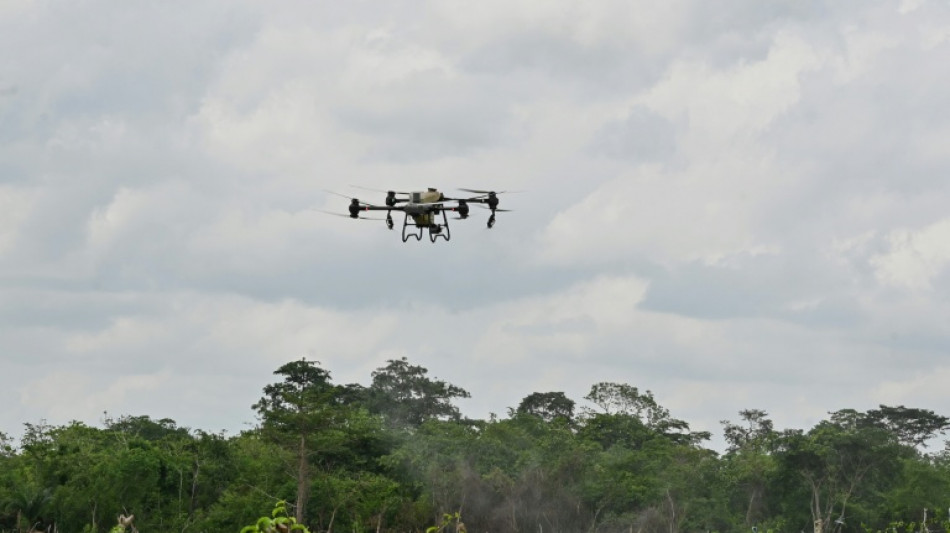
-
 ABC says Jimmy Kimmel off air 'indefinitely' after Charlie Kirk comments
ABC says Jimmy Kimmel off air 'indefinitely' after Charlie Kirk comments
-
Tourists return to Peru's Machu Picchu after community protest

-
 Simeone calls for more protection after Liverpool scuffle
Simeone calls for more protection after Liverpool scuffle
-
Trump gets lavish UK banquet - and an awkward guest

-
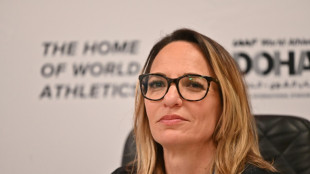 Colombia's Restrepo aims to make history as World Athletics head
Colombia's Restrepo aims to make history as World Athletics head
-
US stocks finish mixed as Fed cuts rates for first time in 2025

-
 Palmer blames 'lack of concentration' for Bayern defeat
Palmer blames 'lack of concentration' for Bayern defeat
-
12-million-year-old porpoise fossil found in Peru
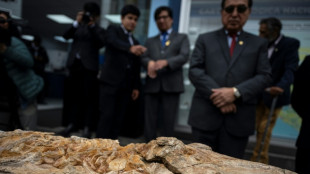
-
 Van Dijk grabs Liverpool win, PSG start Champions League defence in style
Van Dijk grabs Liverpool win, PSG start Champions League defence in style
-
Kane doubles up as Bayern sink Chelsea in Champions League

-
 Van Dijk snatches Champions League win for Liverpool as Simeone sees red
Van Dijk snatches Champions League win for Liverpool as Simeone sees red
-
Cardi B expecting child with football player boyfriend Diggs

-
 Kvaratskhelia stunner helps holders PSG to winning Champions League start
Kvaratskhelia stunner helps holders PSG to winning Champions League start
-
Thuram on target as Inter Milan cruise at Ajax

-
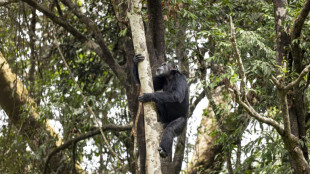 Chimps ingest alcohol daily: study
Chimps ingest alcohol daily: study
-
With eye on US threat, Venezuela holds Caribbean military exercises

-
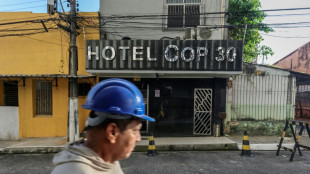 Only 40% of countries have booked lodging for Amazon climate meet
Only 40% of countries have booked lodging for Amazon climate meet
-
Louboutin taps Jaden Smith to lead well-heeled shoemaker's men's line

-
 Pakistan beat UAE to set up India rematch in Asia Cup
Pakistan beat UAE to set up India rematch in Asia Cup
-
US Fed makes first rate cut of 2025 over employment risks

-
 US sprint star Kerley joins drug-fueled Enhanced Games
US sprint star Kerley joins drug-fueled Enhanced Games
-
Decaying body found in US rapper's Tesla identified as teen girl

-
 Flick backs 'unbelievable' Rashford to shine in Yamal absence
Flick backs 'unbelievable' Rashford to shine in Yamal absence
-
Mourinho poised for Benfica return after Lage sacking

-
 Brazil's Bolsonaro adds skin cancer to medical woes
Brazil's Bolsonaro adds skin cancer to medical woes
-
Colombia vows to fight drug trade 'with or without' the US

-
 Germany's Merz criticises festival for axing Israeli conductor
Germany's Merz criticises festival for axing Israeli conductor
-
Thousands protest in London over Trump UK visit

-
 Fired US health agency chief testifies on pressure to 'replace evidence with ideology'
Fired US health agency chief testifies on pressure to 'replace evidence with ideology'
-
Palestinians flee Gaza City in face of deadly Israeli offensive
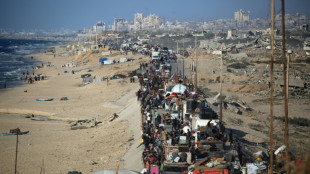
-
 England take Salt path to victory over Ireland in first T20
England take Salt path to victory over Ireland in first T20
-
French strikes hit Bayeux Tapestry transfer ahead of UK loan
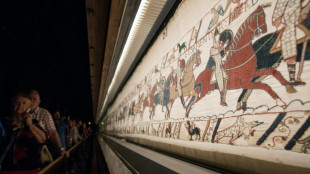
-
 New York officials sink Times Square casino bid
New York officials sink Times Square casino bid
-
Canada central bank cuts key lending rate citing Trump tariffs

-
 Pakistan Asia Cup match belatedly goes ahead amid India handshake row
Pakistan Asia Cup match belatedly goes ahead amid India handshake row
-
Nader pulls off shock in 1,500 metres, Moon rises to pole vault challenge at worlds

-
 Ex-US climate envoy: Trump threatening 'consensus science' worldwide
Ex-US climate envoy: Trump threatening 'consensus science' worldwide
-
EU proposes action on Israel trade and ministers over Gaza

-
 US Treasury official expected to be named IMF's second-in-command: source
US Treasury official expected to be named IMF's second-in-command: source
-
Man City 'apparently' not Champions League contenders: Guardiola

-
 EU says India's Russia links jeopardise closer ties
EU says India's Russia links jeopardise closer ties
-
Ukraine reach BJK Cup semi-finals for first time
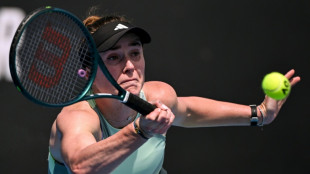
-
 Benjamin sets up 'historic' hurdles showdown with Warholm and Dos Santos
Benjamin sets up 'historic' hurdles showdown with Warholm and Dos Santos
-
Milan-Cortina bobsleigh track 'surpasses expectations', say Winter Olympics organisers

-
 Stocks, dollar calm ahead of expected US rate cut
Stocks, dollar calm ahead of expected US rate cut
-
Nvidia CEO disappointed over China chip ban report
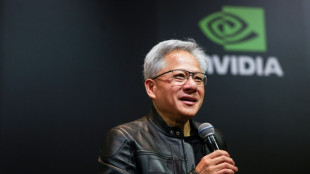
-
 Portugal's Isaac Nader wins world men's 1,500m gold
Portugal's Isaac Nader wins world men's 1,500m gold
-
France launches appeal to acquire Proust's 'madeleine' writings

-
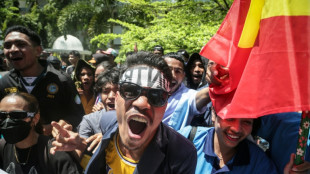 East Timor to scrap MP pensions and SUVs after protests
East Timor to scrap MP pensions and SUVs after protests
-
Van Niekerk enjoys second wind in Tokyo after injury nightmare


Ivory Coast farmers hope tech tempts jaded youth back to fields
Stopwatch in hand, dozens of Ivory Coast students raced against the clock to design robots for the farms of the future in the world's top cocoa-producing nation.
With each team facing off to draw up the best bot blueprint, the competition is part of a broader push to tempt the west African nation's large population of young people, disillusioned with farming life, back to the plough.
Though farming has long been the pillar of Ivory Coast's economy, many young Ivorians have turned their backs on fruit-picking and tree-felling, discouraged by the hard labour and the slow pace of progress.
"I come from a family of farmers," 20-year-old student Pele Ouattara told AFP at the event in Abidjan, Ivory Coast's largest city.
"My passion for robotics grew out of my desire to improve the conditions in which my parents used to farm," he added.
On a rival team several metres away, fellow student Urielle Diaidh, 24, feared that Ivorian farming "risks dying out with time if modern technologies aren't adopted".
Dominated by the cultivation of cocoa, rubber and cashew nuts, nearly half of Ivorians with jobs work in agriculture in one way or another.
Yet the country's farms have been slow to modernise. Less than 30 percent of farms are mechanised, according to the National Centre for Agronomic Research.
And although three-quarters of Ivorians are under the age of 35, the sector is struggling to refresh an ageing workforce.
Surrounded by a flurry of tiny white robots on their circuit rounds, digital transformation engineer Paul-Marie Ouattara said he has seen "a real enthusiasm from young people" for bringing agriculture into the 21st century.
This "agriculture 4.0" that the competition wishes to promote is "improved, enhanced through new technologies, whether they be robots, drones, artificial intelligence, or data processing", the 27-year-old said.
All these "will help the farmer", insisted Ouattara, who works for a private business which sponsored the contest.
- Change, but for whom? -
Young people have not wholly given up on farming, however -- just on the old way of tilling the land.
At the Ivorian digital transition ministry, Stephane Kounandi Coulibaly, director of innovation and private sector partnerships, said he had seen a boom in agricultural start-ups.
Most of them were founded by young people, he added.
The "agritech" trend mirrors that already in motion across the continent, including in Benin, Nigeria and Kenya, with Abidjan hosting a forum for African start-ups at the beginning of July.
Ivory Coast's world-leading cocoa growers, who produce 40 percent of the global supply, are also climbing aboard.
"We have noticed the appearance of new technologies since four or five years ago," said Thibeaut Yoro, secretary-general of the national union of cocoa producers.
Yoro hailed how those shiny new gadgets helped lighten a "strenuous" job still riddled with "archaic practices".
"We dig, we hack through the bush, we harvest with machetes," he said, with planters suffering from "back aches and fatigue" as a result.
"These are things which could be changed with new technology," the trade union leader argued.
Who can afford those mod cons is another question altogether.
A pesticide-spraying drone with a capacity of 20 litres (five US gallons) can cost nine million CFA francs, or around $16,000.
That is nine times what the average farmer, owning one hectare (two-and-a-half acres) of cocoa trees, would make in six months.
- 10 minutes vs two days -
To reduce those costs, out of the reach of most farmers, a number of Ivorian enterprises offering equipment and technology for hire have sprung up.
In the verdant countryside outside of Tiassale, around 125 kilometres (78 miles) outside of Abidjan, Faustin Zongo has called in a contractor to spray his field of passion fruit plants with pesticides.
Thanks to the drone, the job took 10 minutes per hectare to complete, for the cost of around $27.
Using traditional methods, "it would take two days for each hectare", the farmer said.
By his side, Nozene Ble Binate, project manager for Investiv -- the company Zongo hired -- said that using up-to-date technology made farming "more attractive".
"More and more young people are returning to the land and reaching out to us," the 42-year-old said.
Back in Abidjan, Jool has made a business of offering ranchers software-powered analysis of their crops, with prices starting under $100.
The start-up's 32-year-old founder, Joseph-Olivier Biley -- the son of farmers himself -- boasted of his tool's ability to "know what to plant, where and how" and to "detect diseases before they strike".
With it, farmers could expect yields "optimised by more than 40 percent", Biley told AFP at Jool's offices, on the outskirts of the Ivorian economic capital.
At the digital transformation ministry, Coulibaly, the innovation chief, said the west African country plans to build a centre for manufacturing state-of-the-art inventions and training farmers in their use.
That would mean Ivorian businesses would no longer have to import their technology from abroad, often from China, he added.
M.Schneider--VB
